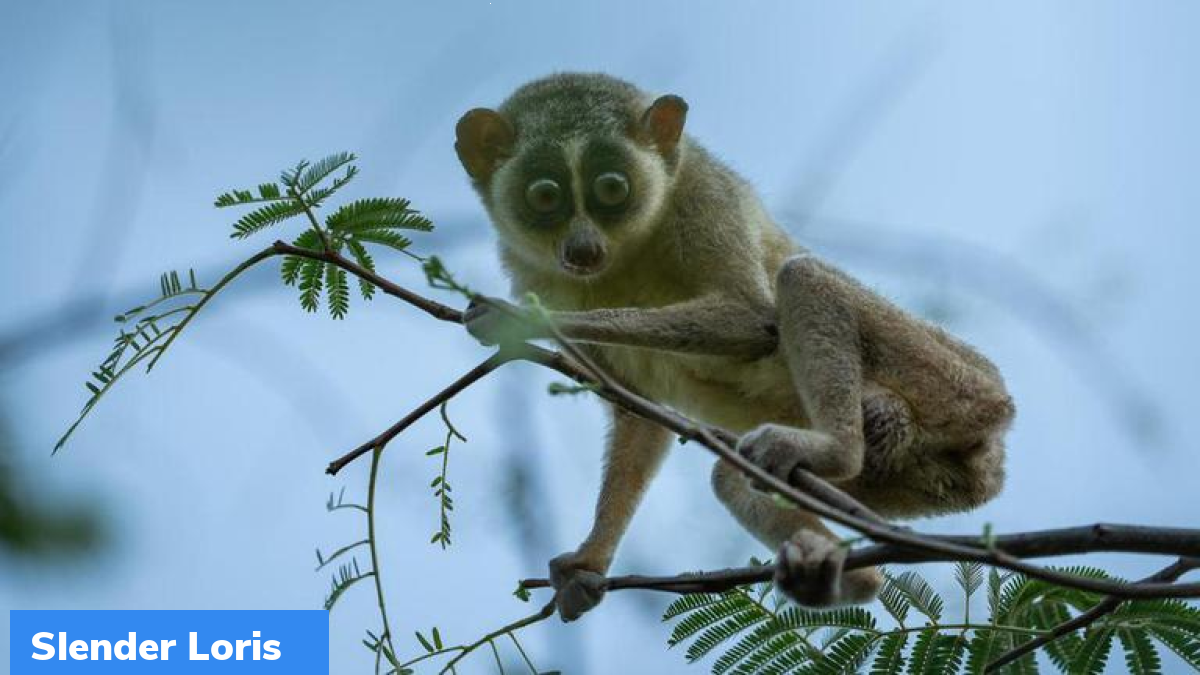Kadavur Slender Loris sanctuary
The state government of Tamil Nadu has notified the establishment of Kadavur Slender Loris Sanctuary.
Key facts
- Tamil Nadu is set to host India’s first ever Slender Loris Sanctuary.
- Named Kadavur Slender Loris Sanctuary, it will span across 11,806 hectares in Karur and Dindigul districts, covering areas of Kadavur taluk in Karur and, Dindigul East, Vedasandur and Natham taluks in Dindigul.
- The government notified the establishment of the new sanctuary under Section 26 A(1)(b) of Wildlife (Protection) Act, 1972.
- This is part of the Tamil Nadu government’s on-going efforts towards conservation of endangered and vulnerable species in the state.
- Over the past 15 months, it had notified India’s first Dugong Conservation Reserve in Palk Bay, Nanjarayan Tank birds sanctuary in Tiruppur and Kazhuveli bird sanctuary in Villupuram as well as the fifth elephant reserve of the state in elephant reserve at Agasthyamalai in Tirunelveli.
About Slender Loris
The slender lorise, belonging to genus loris, are native to Sri Lanka and southern India. These species spend majority of their life in trees, travelling the atop the branches with slow and precise movements. These nocturnal animals are found in scrub forests, semi-deciduous forests, swamps and tropical rain forests. Though insectivorous, these animals also consume plants. They play a critical role in the terrestrial ecosystem. They are also crucial in agriculture since they consume pests that are harmful to crops. They are categorized as endangered animal by the International Union for the Conservation of Nature (IUCN) Red List. These endangered primates are listed under Schedule I of the Wildlife (Protection) Act of India, 1972. The species is currently among the least studied of all primates in India. They are poached because of the erroneous belief that they have magical powers. Poaching and the habitat loss are the main threats faced by them. The loss of acacia tree, habitat fragmentation, hunting for pet trade and meat are among the reasons for the dwindling population of this species.
Month: Current Affairs - October, 2022
Category: Environment Current Affairs • India Nation & States Current Affairs • Places in News Current Affairs


